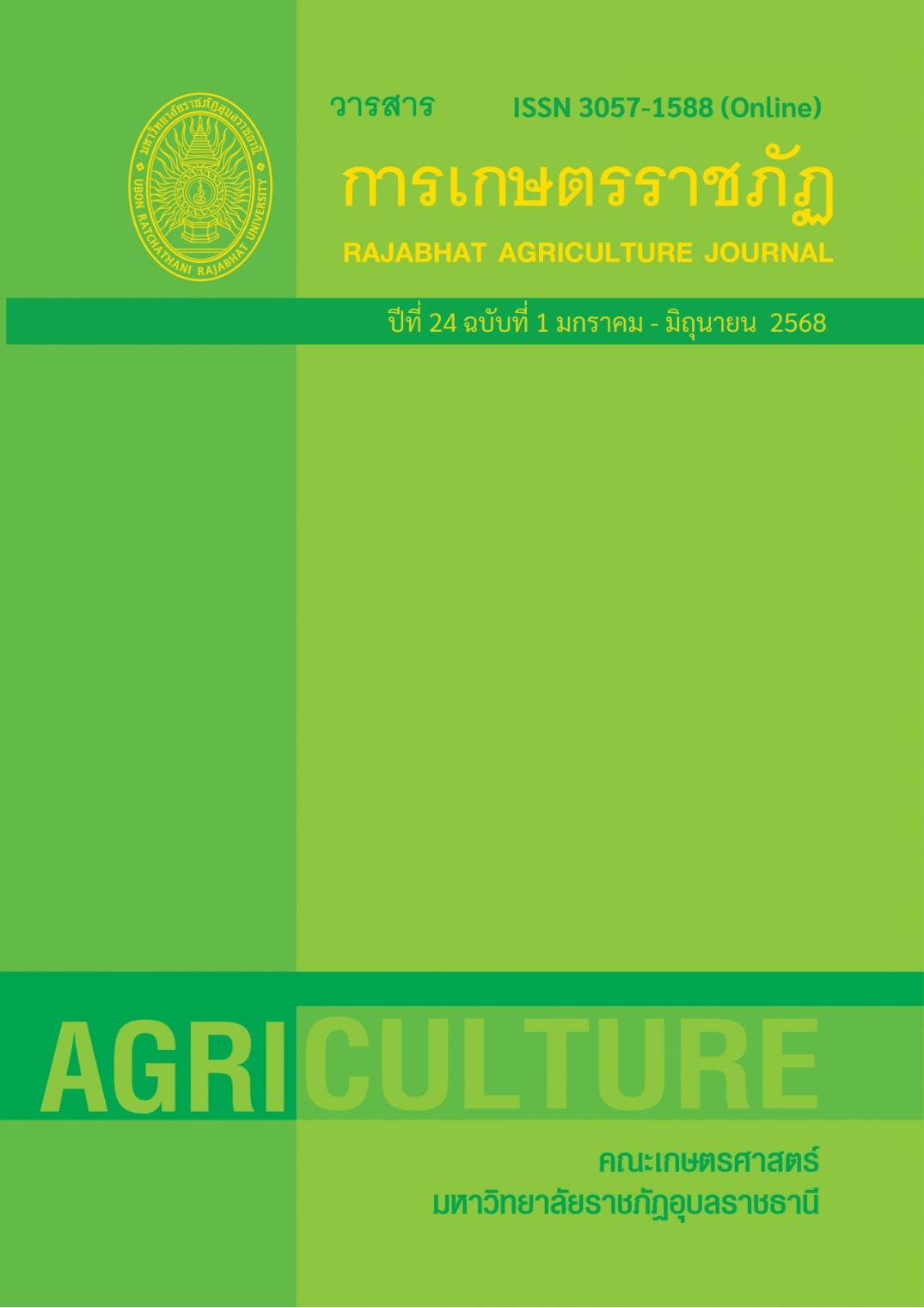Agricultural Awareness among High School Students and Teachers in Benchama Maharat School, Ubon Ratchathani, Thailand
Main Article Content
บทคัดย่อ
This study aimed to: (1) determine socio-demographic and socio-economic characteristics of students (Grades 7–9) and teachers at Benchama Maharat School in Ubon Ratchathani, Thailand, and (2) assess the level of agricultural awareness among the respondents. A quantitative survey collected data from 521 students and 95 teachers via online questionnaires. Descriptive statistics and inferential analyses (chi-square, Tukey Honestly Significant Difference [HSD]) were conducted using XLSTAT. The student respondents (balanced by gender) were predominantly under 15 years old, with parents employed in the government or private sectors. Parental education was generally at the tertiary level, and monthly household incomes averaged ฿32,600–฿34,600. Teacher participants (aged 21–59) mostly held master's degrees and earned approximately ฿36,800 per month.
Students demonstrated moderate agricultural knowledge (weighted mean [WM] = 3.09–3.29), whereas teachers scored higher (WM = 3.60). Attitudinal measures were slightly positive: students ranged from WM = 3.54–3.82, and teachers at WM = 4.21. Behavior levels varied by grade: Grades 7 and 8 showed moderate involvement (WM = 3.25 and 3.24), while Grade 9 and teachers were more active (WM = 3.44 and 3.83).
Chi-square analyses revealed that students’ awareness was significantly influenced by age, gender, grade level, residence location, and access to information. Teachers’ awareness correlated significantly with socio-economic factors. Tukey HSD post-hoc tests confirmed that teachers’ awareness surpassed that of students, and that Grade 9 students differed significantly in attitude from Grade 7.
These findings underscore the impact of socio-demographic factors on agricultural awareness and recommend curriculum enhancements incorporating hands-on agricultural experiences.


